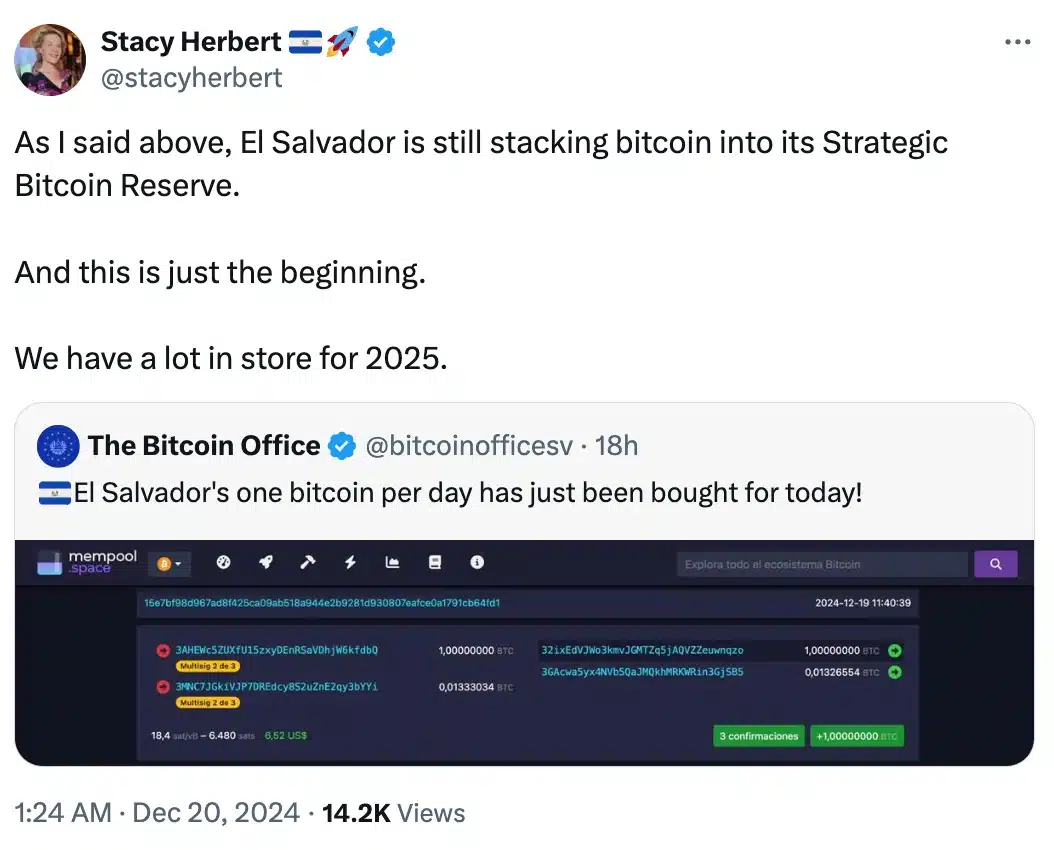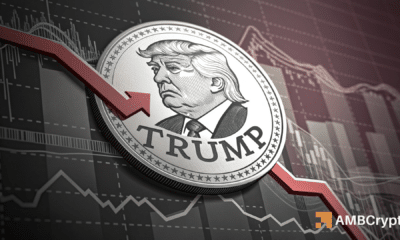Bitcoin purchases to continue in El Salvador despite IMF warning

- After the latest purchase, El Salvador’s total holdings amount to $632 million.
- Countries like Russia and China are exploring national Bitcoin Reserves despite regulatory challenges.
El Salvador, the first nation that embrace cryptocurrency as legal tender alongside the U.S. dollar, continues to navigate tensions with the International Monetary Fund (IMF).
Just days after securing a financing agreement, the government reaffirmed its commitment to buying Bitcoin [BTC]. This move accelerated its accumulation, despite IMF recommendations to limit exposure to the cryptocurrency.
This isn’t the first instance of friction. The IMF raised concerns back in September 2021, warning of financial and legal risks that have yet to materialize.
El Salvador’s Bitcoin strategy
The country’s Bitcoin Office recently added $1 million to its Strategic Bitcoin Reserve. Thus, showcasing the government’s continued commitment to the king coin.
Notably, this move has proved successful. The nation’s Bitcoin portfolio has surged by 133%, reaching a total valuation of $632 million.
Remarking on the same, Stacy Herbert, El Salvador’s national Bitcoin office director, took to X (formerly Twitter) and noted,
“El Salvador will continue buying bitcoin (at possibly an accelerated pace) for its Strategic Bitcoin Reserve.”
In a separate tweet, Herbert further added,
It’s impact on other nations
This acquisition aligns with President Nayib Bukele’s strategy to purchase one Bitcoin daily. This demonstrates the nation’s unwavering commitment to incorporating Bitcoin into its financial framework.
That being said, El Salvador’s continued commitment to its Bitcoin strategy reflects a broader trend. Countries once opposed to cryptocurrency, like China and Russia, are now exploring ways to integrate digital assets into their financial systems.
Additionally, regulators from El Salvador and Argentina have already entered into a partnership to foster the growth and advancement of the cryptocurrency sector in their countries.







